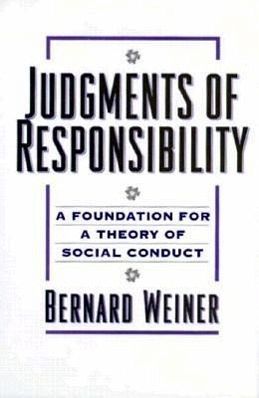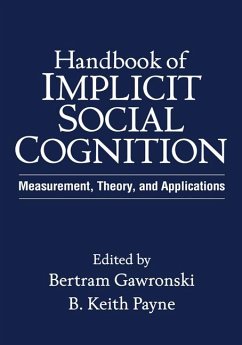
Judgments of Responsibility
A Foundation for a Theory of Social Conduct
Versandkostenfrei!
Versandfertig in über 4 Wochen
50,99 €
inkl. MwSt.

PAYBACK Punkte
25 °P sammeln!
This intriguing new work provides a careful examination of how judgments of ourselves and others relate to problems and, in so doing, yields valuable insight into human interactions and motivational processes. Laying out a general theory of social motivation, the author incorporates a number of well-researched areas in social psychology and motivation to elucidate basic principles that guide human conduct across culture and time. Chapters reveal how responsibility inferences are reached, the manner in which such judgments affect emotions, and the role that "cold" judgments of responsibility ve...
This intriguing new work provides a careful examination of how judgments of ourselves and others relate to problems and, in so doing, yields valuable insight into human interactions and motivational processes. Laying out a general theory of social motivation, the author incorporates a number of well-researched areas in social psychology and motivation to elucidate basic principles that guide human conduct across culture and time. Chapters reveal how responsibility inferences are reached, the manner in which such judgments affect emotions, and the role that "cold" judgments of responsibility versus "hot" feelings, such as anger, play in producing both positive and negative behaviors. The author demonstrates that the ways others are perceived influence the behaviors directed toward them, showing how attributions of personal causality are followed by judgments of responsibility. These inferences then give rise to other-directed emotions such as anger and sympathy which, in turn, generate antisocial and prosocial actions. Providing a conceptual system that permits readers a deeper understanding of motivational processes and suggests guidelines for more effective interventions, this book is insightful reading for a wide range of scholars.












